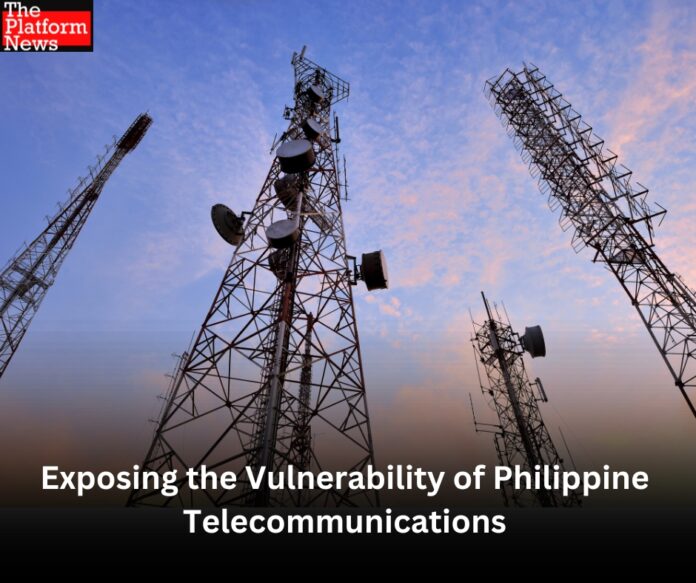The safety and security of telecommunications in the Philippines have become a critical concern as the country continues to rely heavily on digital infrastructure for communication, business and government operations.
With the rapid expansion of internet and mobile networks, the integrity of these systems is more important than ever. As the Philippines pushes forward with digitalization, the country must also confront significant trials to ensure that the sector remains secure and resilient.
Globe Telecom, PLDT-Smart Communications and DITO Telecommunity dominate the telecommunications landscape in the Philippines. These companies have been at the forefront of expanding the country’s digital infrastructure, particularly with the rollout of 5G networks and the extension of fiber optic services.
The telco sector has also seen substantial investment aimed at improving internet speed, reliability and coverage across the archipelago in recent years.
However, with this rapid growth comes heightened risks. Cybersecurity threats are a major concern, as the increased reliance on digital communication networks makes them a prime target for hackers and cybercriminals.
In 2023 alone, the Philippine National Police (PNP) reported a 30% increase in cybercrime cases, including incidents of hacking, data breaches and online fraud targeting telecommunications networks. These attacks can disrupt services, compromise sensitive data, and erode public trust in digital systems.
Another challenge lies in the physical infrastructure supporting telecommunications. The Philippines is prone to natural disasters such as typhoons, earthquakes and volcanic eruptions, all of which can damage or destroy essential communications infrastructure like cell towers and undersea cables. This vulnerability is particularly pronounced in remote and rural areas where infrastructure is less developed and harder to secure.
Also posing as threats are the risks of vandalism and sabotage as these actions can lead to service outages and compromised security.
Data privacy is another critical issue in the telecommunications sector. The widespread use of mobile devices and internet services has raised concerns regarding the protection of personal information. While the Data Privacy Act of 2012 provides a legal framework for safeguarding user data, enforcement remains to be a challenge. Incidents of unauthorized data access and breaches highlight the ongoing struggle to maintain robust privacy protections in an increasingly connected world.
Supply chain risks also affect the security of telecommunications in the Philippines. Much of the equipment used in the country’s networks, including hardware and software, is sourced from foreign suppliers. This reliance on external providers raises concerns about potential vulnerabilities in the supply chain, particularly regarding the use of foreign-made components that could be compromised or subject to espionage.
The Philippine government and the telecommunications industry have initiated several measures to respond to these challenges. Developed by the Department of Information and Communications Technology (DICT), the National Cybersecurity Plan aims to strengthen the country’s defenses against cyber threats.
Additionally, public-private partnerships have been established to improve the resilience of telecommunications infrastructure, including the deployment of disaster-proof technologies and the construction of more secure communication networks.
There is a need for the country to continue to invest in both digital and physical infrastructure to ensure the safety and security of its telecommunications sector. As emerging technologies like 5G, AI and blockchain are adopted, they will bring new opportunities but also new risks.
To navigate these challenges, collaboration between the government, industry and international partners will be essential. Only through concerted efforts can the Philippines safeguard its telecommunications networks and support the nation’s ongoing digital transformation.



